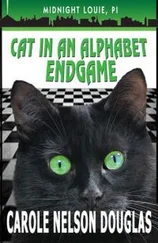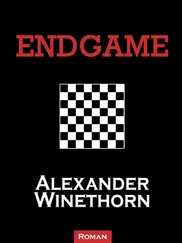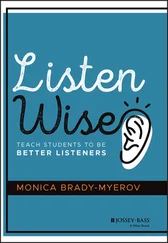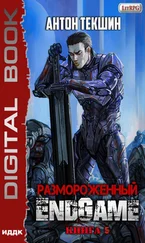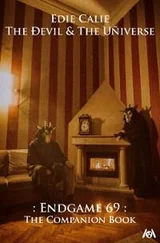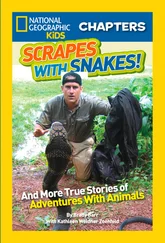Despite the park’s nonconformity, during the 1950s organized tournaments and other games were played there almost every day, even in winter, with players wrapped in mufflers and hats, awkwardly moving their pieces with gloved hands. “At first I couldn’t get a game,” Bobby said, looking back on his days at the park. “The players were all adults, mostly old men in fact, and didn’t care to waste their time on a boy. Mr. Nigro introduced me around and when I got better it was easier to get a game.” Bobby’s recollection of a homogenous cast of “old men” was probably skewed by his child’s perspective at the time. In reality, the tables were populated by players of all ages; there just weren’t many children as young as him.
In the park in those days chess clocks to time the games weren’t often used, but a form of speed chess called “blitz” (the German word for “lightning”) was quite popular. In this variation, players had to move immediately as soon as an opponent made his move. If a player didn’t respond after more than a few seconds, the opponent—or a designated timekeeper—would shout “Move!” and if the demand wasn’t complied with, that player would lose the game. Many shouts of “Move!” could be heard on any given day in the park. Bobby played this form of chess at Nigro’s insistence and wasn’t particularly good at it, but it did quicken his appraisal of the position at hand and forced him to trust his instincts.
As Bobby’s participation in the summer of 1955 Washington Square Park tournament got under way, he took his place on a wooden bench and began moving his pieces on the stone tables embedded with lightly colored red and gray squares. As soon as the action on the board began to grow tense or complicated, the boy would grow more pensive and often have to kneel on the bench to get a better perspective. Pink and white petals from late-blooming cherry trees would occasionally float down onto the board, and some would gently land on his head. Dog owners out for a stroll would continuously pass by, pulling on leashes and calling out commands to keep their animals from scurrying under the tables and sniffing the ankles and shoes of the players. Kibitzers, always free with mostly unwanted advice, would often have to be chased away by the tournament organizer José Calderon.
During the games, Nigro would ritually head off for a few minutes to a nearby restaurant and return with a hamburger, French fries, and a chocolate milk shake for Bobby, who’d consume the lunch absentmindedly, his eyes always on the board. Bystanders commented softly to Nigro on how steadfast and serious the boy appeared. Once, thirty minutes after his lunch, Bobby, unaware that he’d already eaten, whispered, “Mr. Nigro, when is the food coming?”
The 1955 Washington Square tournament included sixty-six players of all different strengths and talents. Since the entry fee was only 10 cents (the $6.60 collected was sent to the American Red Cross as a donation), anyone could enter. So there were rank beginners who barely knew the moves, seasoned club players who’d been playing chess all of their lives, and a sprinkling of masters. So involved was Bobby in his games that he never noticed that some of the top players en route to Moscow for yet another return USA-USSR match had stopped by to watch, and a few were even following one of his games.
Bobby won a series of contests against weaker players, but as he progressed up the tournament ladder, he confronted stiffer opposition and started to lose. Harry Fajans, a tall, pencil-thin master with poor posture, who was a member of the Marshall Chess Club, one of the most renowned chess institutions in the country, related that when he beat Bobby in that Washington Square tournament, the boy began to cry. When questioned about the incident years later, Bobby was highly indignant and vehemently denied it.
The rounds of the tournament stretched into October, and toward the final weeks it was often cold and rainy. Bobby, dressed in a light zip-up jacket that wasn’t warm enough, pressed on despite the discomfort, his pieces occasionally sliding off the cement tables slick with rain. “We were glad when it was over,” Fischer remembered.
He finished fifteenth, and was awarded a ballpoint pen, perhaps because he was the youngest player. He later recounted: “I felt bad when the pen was handed to me, because it looked like the ones that I was always buying for a quarter or a half dollar.” A few weeks later, however, while walking with his mother past a drugstore, she pointed out an identical pen for sale in the window. It had a price tag of $10.00. “I felt better,” quipped Bobby.
As a result of his participation in the tournament, Bobby for the first time saw his name published in a major newspaper, a harbinger of the vast publicity he’d attract for the rest of his life. The New York Times ran a small story about the results, crammed in the back of the paper, on the obituary page. The headline proclaimed, EASTMAN WINS AT WASHINGTON SQUARE—BOY 12, NEAR TOP.
Although Charles Eastman had won the event, it was Bobby who received the most ink. The Times extolled: “Many in the crowd of 400 onlookers seemed to think the best show was given by Bobby Fischer. Despite competition from his more mature and experienced adversaries, he was unbeaten until yesterday, when he came within 15 players of the championship.”
When Bobby’s maternal grandfather, Jacob Wender, died, the yellowed Times article was found among his papers. Bobby commented with both wistfulness and sting: “My grandfather had shown little interest in [me] and knew nothing about chess.” Still, the irony wasn’t lost on him. He sensed that the old man was probably proud of him from the very beginning of his chess career, but never told him.
3
Out of the Head of Zeus

DURING THE SUMMER of 1955 Bobby serendipitously happened upon a gathering place for chess aficionados and, in so doing, raised his game to a whole new level. Nigro would often take him to Manhattan’s Central Park, where they’d rent a boat for an hour or two and then paddle up, down, and around the placid lake, through the lily pads, looking like fin de siècle oarsmen in an Impressionist painting. Bobby did most of the rowing, which broadened his shoulders.
One Saturday afternoon, as they walked out of the park on their way home, Bobby noticed a brass plaque affixed to the front of an elegant stone building on Central Park South, a posh street bordering the park. The engraving read simply, MANHATTAN CHESS CLUB. The sign startled the boy, and as he stared at it, his attention was drawn to an open window on the ground level. Bobby stood there for a moment, agape: He was just inches away from two players sitting at a table inside, intently moving pieces across a board. The men were attempting to get a breath of fresh air during one of the dog days of summer. The club looked inviting. Bobby turned sheepishly to Nigro. “Can we go in?” His teacher said simply, “Let’s try.”
“We were looking for [a way] to get out of the heat,” Bobby remembered. “As soon as I saw the sign I wanted to go in, and the minute I went in, I liked it.” The club was decorated with trophies; oil paintings of legendary players such as Lasker, Morphy, and Capablanca; photographs of contemporary masters; and bookcases filled with works on chess strategy. There were about a dozen games taking place when they entered. Bobby saw no children.
Walter Shipman, one of the club’s directors, walked over to the newcomers as they hesitated in the doorway. A twenty-six-year-old novice attorney who later became an international master, he greeted the Brooklyn pair and immediately matched Bobby with a player. Bobby quickly downed his opponent, who called to another player to try his hand with the boy; and he, too, was defeated. Soon, not yet aware that they were in the presence of a prodigy but realizing that Bobby was someone exceptional, the club’s players started gathering around his board and asking him questions. “Where did you learn how to play chess?” “How old are you?” “Where do you live?” “Where’d you learn that opening?”
Читать дальше
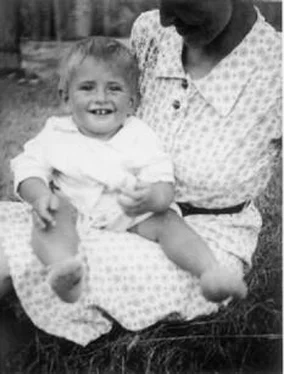


![Антон Текшин - EndGame [СИ]](/books/394477/anton-tekshin-endgame-si-thumb.webp)
